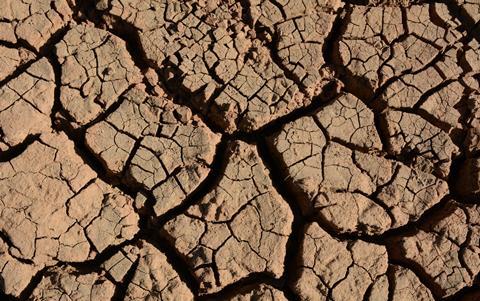Extreme weather in southern Europe will reduce yields and make fresh fruit and vegetables more expensive in Britain, according to new study

Droughts and extreme weather events in Europe are threatening the supply of fresh fruits and vegetables to the UK, a report has warned.
The UK is heavily reliant on the Mediterranean for lots of its fresh fruits and vegetables, and this produce will become more expensive and harder to obtain as extreme heat reduces yields and makes a healthy diet unaffordable for the poorest in society. This was the stark warning of a new report by the Energy and Climate Intelligence Unit (ECIU).
Just over a quarter of UK food imports – 9.8 billion kilograms, worth just over £16 billion – came from the Mediterranean region, most of which was staple fresh produce such as fruit and vegetables, core to a healthy diet.
Climate change is driving more extreme weather – including hotter, longer and more frequent heatwaves. And this extreme heat, along with resulting drought, wildfires and subsequent flooding when rain comes, destroys crops and harms agriculture.
With half the UK’s food imported from overseas, worsening climate impacts threaten our food security by impacting British staples. This could lead to food shortages and price rises, on top of those already caused by the gas crisis.
The Intergovernmental Panel on Climate Change (IPCC) has declared that humans have heated the planet by an average of 1.1°C since pre-industrial times. Scientists working to attribute the effect of climate change on extreme weather phenomena operate on the basis that it is now closer to 1.2°C.
Europe is warming at twice the rate of the global average from the last three decades. And the nations in southern Europe and northern Africa, around the Mediterranean, have experienced some of the worst heat extremes ever in the last few years.
Europe saw its hottest summer in 2022, and the extreme heat was estimated to have caused more than 61,000 additional deaths, nearly 3,500 of which were in the UK. It also led to widespread drought which harmed food harvests.
This year has seen the world’s hottest June on record; a succession of the hottest days ever recorded; the hottest sea surface temperatures; and, in July, the hottest month ever experienced by modern humans.
In 2022, the UK imported around half its food from overseas: 37 billion kilograms, worth £58 billion. Half of that was food that we do not grow here.
Spain alone, which is experiencing some of the worst climate impacts in the region, accounted for seven per cent of Britain’s food imports, worth £4 billion.
Some of the commodities the UK imports from the Mediterranean fruits and vegetables that we can grow outside in the UK for at least parts of the year, or that we can grow indoors – in greenhouses or vertical farms. Indoor production of course requires more expensive and energy-intensive processes to protect them and heat the growing space.
This category of products includes nearly all of the cauliflowers, broccoli and strawberries that Britain imports, and nearly two-thirds of the cucumbers and tomatoes which we import, as well as nearly a fifth of our overall supply of onions.
By contrast, there are other fruits and vegetables that are simply impossible to grow in Britain at scale.
In the latter category, more than half of Britain’s lemons and sweet peppers come from the Mediterranean, along with two thirds of all its oranges and 40 per cent of its table grapes.
Reduced yields mean less food in our shops and markets, and higher prices for the commodities affected.
And the report’s authors point out that UK households have already seen food price rises averaging £400 last year, as a result of climate impacts and fossil fuel price volatility.
The growing threat from climate impacts this year shows every sign of adding to this, thus exacerbating the cost-of-living crisis, worsening the impact on poorer families, and threatening nutrition levels.
“It is sometimes suggested we replace commodities at risk by switching suppliers, repurposing land to grow more here, or even growing new foods as our own climate warms. However, climate impacts do not respect borders,” the ECIU said.
“Even if the world succeeds in keeping temperature rises to 1.5°C, food producers in the UK, and worldwide, already face the need to adapt to these new climate extremes of higher average temperatures than humans have been used to for most of our existence on Earth.
“Sharing best practice, as well as both government and private investment in that adaptation, can be an important means of mitigating the scale of the threat to food supplies.”



